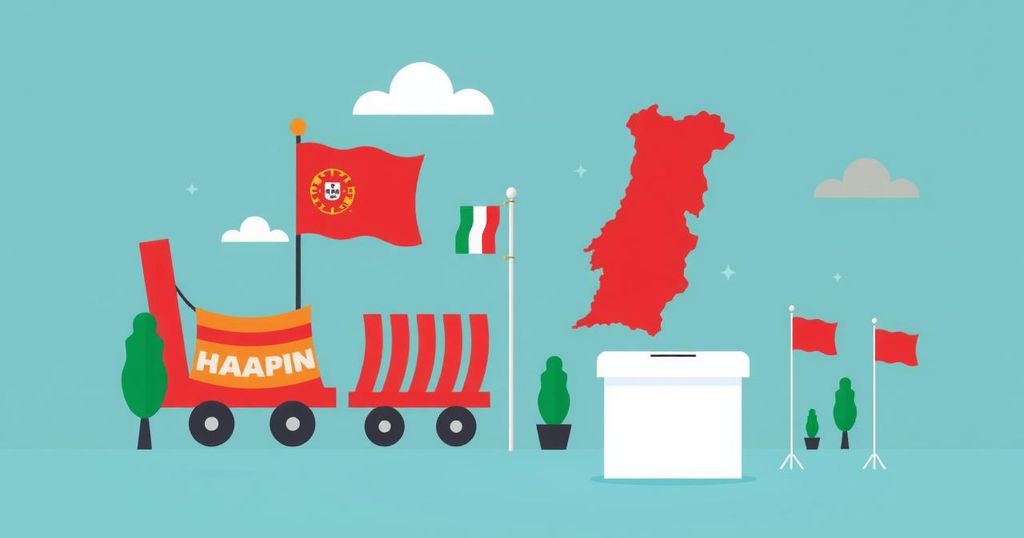Portugal will hold its third snap election in three years following the collapse of Luís Montenegro’s government due to the Spinumviva scandal. Controversies concerning potential conflicts of interest have led to heightened political tensions and uncertainty about coalition possibilities. The upcoming elections are anticipated to be contentious as party leaders face immense pressure amidst an increasingly polarized political landscape.
Portugal finds itself preparing for a third snap election in just three years, following the collapse of Luís Montenegro’s center-right government. This political upheaval stems from various influencing scandals, including the Spinumviva incident involving former Socialist Prime Minister António Costa, leading to his resignation in late 2023. Following a year of instability, the Democratic Alliance coalition took the lead in the subsequent election, managing to establish a minority government that seemed initially stable.
However, new reports surrounding the Spinumviva consultancy, which Montenegro founded but later transferred ownership to family members, ignited concerns about potential conflicts of interest. Opposition parties accused Montenegro of benefiting from government contracts associated with the consultancy, prompting failed censure motions. Amidst this scandal, Montenegro felt compelled to seek a vote of confidence from lawmakers, stating that “the country needs political clarification… to end the atmosphere of permanent insinuations and intrigues.”
Following the lack of support during the confidence vote, Montenegro’s government was promptly concluded, necessitating elections with discussions among party leaders held at Belém Palace. The upcoming elections are tentatively scheduled for early to mid-May, setting the stage for not only legislative elections but also local elections and a presidential election slated for the following January.
Recent polls suggest that while the Democratic Alliance may still lead, the political dynamics remain tense. There is a projected continuity in voter support distribution, but the possibility of coalition-building appears bleak. The far-right Chega party, although losing some support, remains a significant parliamentary player and could influence future governance. With heightened animosity between the Democratic Alliance and the Socialist Party, both leaders face immense pressure as the electoral contest intensifies, raising the likelihood of contentious campaigning.
In conclusion, Portugal’s political landscape is undergoing significant turmoil, marked by the Spinumviva scandal and the imminent snap election. The Democratic Alliance, while projected to lead, faces intensified competition and an uncertain coalition environment. The dynamics between political parties suggest heightened tensions, with the far-right Chega potentially rising as a key influencer in the parliament. As the nation braces for critical elections that will shape its governance, political stability remains tenuous and must be navigated with care.
Original Source: www.politico.eu






